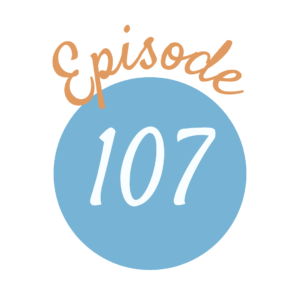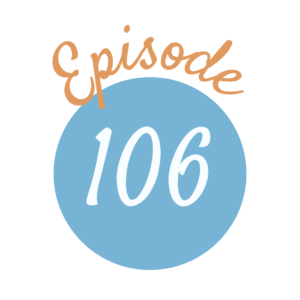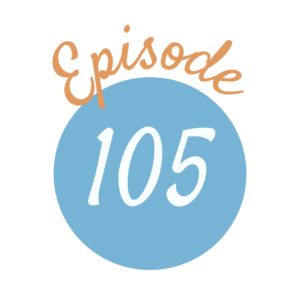
Charlotte Mason encouraged a practice called “Masterly Inactivity.” Emily, Liz, and Nicole discuss what this is, why it is important, and how in the world a mother actually manages to balance law and freedom in her home.
Listen Now:

“We ought to do so much for our children, and are able to do so much for them, that we begin to think everything rests with us and that we should never intermit for a moment our conscious action on the young mind and hearts about us. Our endeavors become fussy and restless. We are too much with our children, ‘late and soon.’ We try to dominate them too much, even when we fail to govern, and we are unable to perceive that wise and purposeful letting alone is the best part of education.” (3/27-28)
Masterly inactivity “indicates the power to act, the desire to act, and the insight and self-restraint which forbid action.” (3/28)
“The sense of authority is the sine quâ non of the parental relationship, and I am not sure that without that our activities or our inactivity will produce any great results.” (3/28)
The child is “free under authority, which is liberty; to be free without authority is license.” (3/29)
“The masterly and the abject ‘yes’ are quite different notes.” (3/29)
“…parental relationship and of that authority which belongs to it, by right and by nature, acts upon the children as do sunshine and shower on a seed in good soil. But the fussy parent, the anxious parent, the parent who explains overmuch, who commands overmuch, who excuses overmuch, who restrains overmuch, who interferes overmuch, even the parent who is with the children overmuch, does away with dignity and simplicity of that relationship…” (3/29)
“children are always playing a game––half of chance, half of skill; they are trying how far they can go, how much of the management of their own lives they can get for the taking, and how much they must leave in the hands of the stronger powers.” (3/31)
“…see without watching, know without telling, be on the alert always, yet never obviously, fussily, so. This open-eyed attitude must be sphinx-like in its repose. The children must know themselves to be let alone, whether to do their own duty or to seek their own pleasure. The constraining power should be present, but passive, so that the child may not feel himself hemmed in without choice.” (3/31)
“In this matter the child who goes too much on crutches never learns to walk; he who is most played with by his elders has little power of inventing plays for himself; and so he misses that education which comes to him when allowed to go his own way.” (3/37)
“Nature will look after him and give him promptings of desire to know many things, and somebody must tell as he wants to know; and to do many things, and somebody should be handy just to put him in the way; and to be many things, naughty and good, and somebody should give direction.” (1/192)
“‘That’s not a star, it’s a planet, Tom,’ with a little twaddle about how planets are like our earth, more or less, was all I had for his hungry wonder. As for how one planet differs from another in glory, his sifting questions got nothing out of me; what nothing has, can nothing give. Again, he has, all of his own wit, singled out groups of stars and, like Hugh Miller, wasn’t it?––pricked them into paper with a pin. ‘Have they names? What is this, and this?’ ‘Those three stars are the belt of Orion’––the sum of my acquaintance with the constellations, if you will believe it! He bombarded me with questions all to the point. I tried bits of book knowledge which he did not want. It was a ‘bowing’ acquaintance, if no more, with the glorious objects before him that the child coveted, and he cornered me till his mother interfered with, ‘That will do, Tom: don’t tease father with your questions.’ A trifling incident, perhaps, but do you know I didn’t sleep a wink that night, or rather, I did sleep, and dreamt, and woke for good. I dreamt the child was crying for hunger and I had not a crust to give him. You know how vivid some dreams are. The moral flashed on me; the child had been crying to me with the hunger of the mind; he had asked for bread and got a stone. A thing like that stirs you. From that moment I had a new conception of a parent’s vocation and of my unfitness for it. I determined that night to find some way to help ourselves and the thousands of parents in the same ignorant case.” (5/122-123)
“The mother exercises the friendly vigilance of a guardian angel, being watchful, not to catch the child tripping, but to guide him into the acting out of the duty she has already made lovely in his eyes; for it is only as we do that we learn to do, and become strong in the doing.” (1/340)
“let them stand or fall by their own efforts.” (3/38)
“One of the features, and one of the disastrous features, of modern society, is that, in our laziness, we depend upon prodders and encourage a vast system of prodding.” I would say things are worse today than she could have imagined. I have reminders on my phone for every last little thing! Almost more important to our topic, however, is the fact that the “more we are prodded the lazier we get, and the less capable of the effort of will which should carry [us] to, and nearly carry us through, our tasks.” (3/39-40)
“Boys and girls are, on the whole, good, and desirous to do their duty.” (3/40)
“If mothers could learn to do for themselves what they do for their children when these are overdone, we should have happier households. Let the mother go out to play! If she would only have courage to let everything go when life becomes too tense, and just take a day, or half a day, out in the fields, or with a favourite book, or in a picture gallery looking long and well at just two or three pictures, or in bed, without the children, life would go on far more happily for both children and parents. The mother would be able to hold herself in ‘wise passiveness,’ and would not fret her children by continual interference, even of hand or eye––she would let them be.” (3/33-34)
“No doubt children are deeply grateful to managing parents, and we are all lazy enough to be thankful to persons who undertake our lives for us: but these well-meaning persons encroach; we are required to act for ourselves, think for ourselves, and let other persons do the same… [T]he feeding in quiet pastures, the being led beside still waters, we…do not see…is a natural state and condition, proper to everyone who will claim it. If we saw this, we should be less obtrusive in our dealings with children; we should study to be quiet, only seeing to it that our inactivity is MASTERLY.” (5/417)
“When we recognise that God does not make over the bringing up of children absolutely even to their parents, but that He works Himself, in ways which it must be our care not to hinder, in the training of every child, then we shall learn passiveness, humble and wise. We shall give children space to develop on the lines of their own characters in all right ways, and shall know how to intervene effectually to prevent those errors which, also, are proper to their individual characters.” (3/35)

School Education (Volume 3), Chapter 3

I Buy a School, Marion Berry
(*Affiliate Links)

Episode 62: Afternoons









